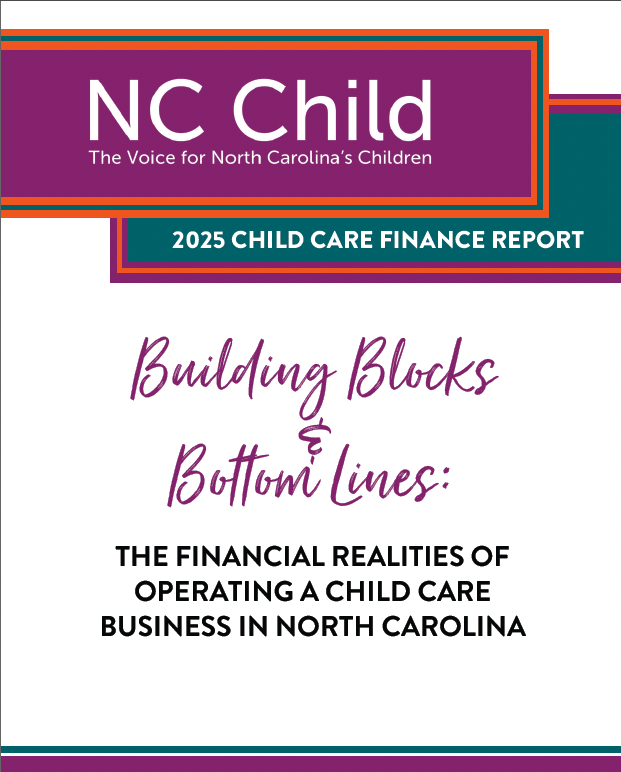Executive Summary
Child care providers across North Carolina are facing growing financial instability as they navigate the end of federal relief funding and increasing operational costs. This report explores how private child care programs, including center-based, family child care homes, and faith-based providers are working to sustain their programs amid rising tuition pressures, workforce shortages, and inadequate public funding. Through interviews with providers across the state, we document the strategies they use to manage limited resources, the trade-offs they face, and the long-term risks to program sustainability.
Providers consistently reported that tuition and subsidy payments fall short of covering the true cost of care. Many described foregoing salaries, using personal credit, and absorbing unexpected expenses without access to emergency funds. While stabilization grants provided temporary relief, their expiration has left programs in a compromised position. The consequences include rising turnover, reduced enrollment capacity, and growing difficult in maintaining quality. Despite these challenges, providers remain committed to serving children and families, often prioritizing affordability over financial sustainability. Before the stabilization grants ended, providers surveyed across the state anticipated reducing operations or closing due to funding issues. The vast majority—over 80%—anticipated raising tuition and other charges such as registration, late fees, and food costs, which they worried could reduce access for families.
This report explores the real costs of providing child care in North Carolina today, from fixed overhead and waged to administrative burdens and unexpected expenses. Through financial profiles, provider stories, and budget breakdowns, we shed light on how early childhood programs piece together funding from public and private sources and where the gaps remain. Understanding the current child care finance landscape is essential for building long-term solutions that support both family affordability and provider stability.
Policy Recommendations
To support a stable child care system, we offer several policy recommendations, including the creation of a statewide subsidy floor, subsidized child care for child care workers, property tax exemptions for providers, and strategies to reduce liability insurance costs. These targeted investments would help address funding gaps, support the workforce, and strengthen North Carolina’s child care infrastructure. As provider stories throughout this report make clear, meaningful action is needed to ensure that child care remains accessible, high quality, and financially viable for years to come.
The insights in this report aim to inform policymakers, funders, and community stakeholders as they consider what it truly takes to sustain a high-quality child care system in North Carolina.
Download the Report
